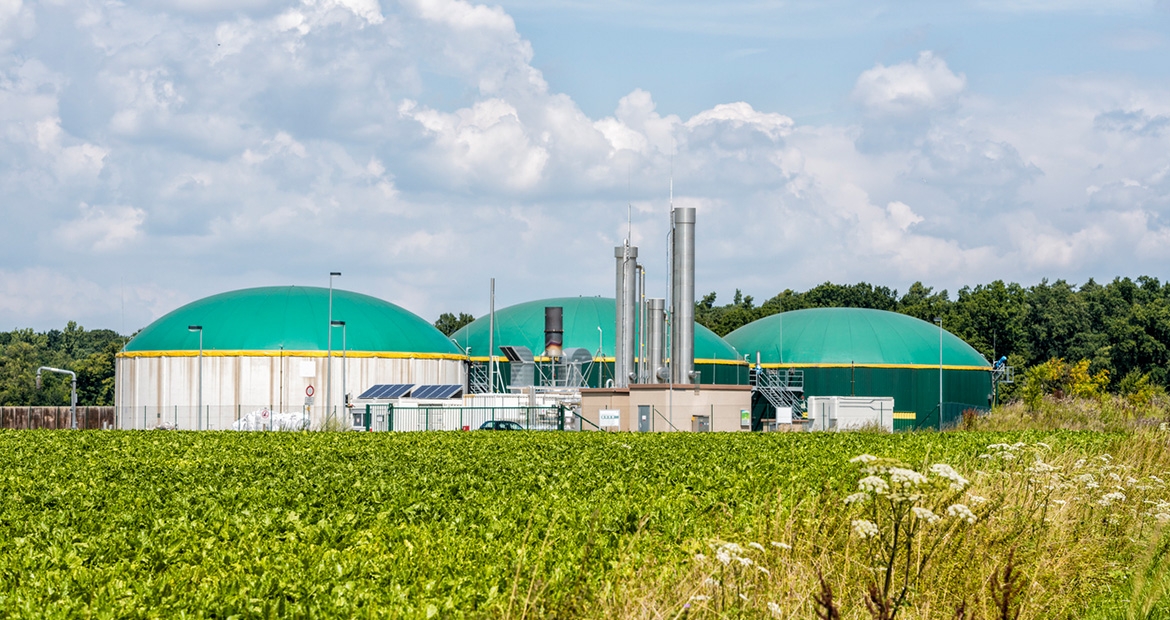Introduction to Renewable Natural Gas
By Puneet Singh Jhawar, General Manager – Global Spark Ignited Business

What is renewable natural gas?
Renewable natural gas (RNG) differs from fossil fuels as it's produced from various types of waste, like used cooking oil, animal waste, sludge from wastewater, manure and other waste materials. As these biodegradable materials decompose, methane is released. This methane is captured and converted into RNG.
Because methane is the primary component of natural gas, RNG is interchangeable with natural gas derived from fossil fuels. In other words, RNG can be used in natural gas engines without any modifications. When you hear the term RNG, envision it as a renewable and clean energy source that contributes to decarbonizing the world, rather than as a fossil fuel. This is why Cummins is excited about RNG and its potential applications in the trucking industry.

Is renewable natural gas carbon-negative?
A carbon negative index, also known as a carbon index, is a measure used to assess the environmental impact of various fuels. If a fuel contributes to lowering the amount of carbon dioxide (CO2) in the atmosphere, it is considered carbon-negative.
The carbon intensity of RNG depends on the type of feedstock used to produce it. For instance, when RNG is derived from sources like manure, chicken waste or dairy waste the carbon intensity is extremely low and therefore the negative index can be substantially higher. When RNG is produced from food waste or landfills, it is still negative but has a slightly higher carbon intensity than animal waste.
RNG is not merely an environmentally friendly alternative to conventional natural gas and other fossil fuels, but is also a proactive solution to reducing CO2 emissions and combating climate change. Broader adoption of RNG in natural gas engines could lead to a significant reduction in CO2 emissions. This is a key reason why 98 percent of all natural gas vehicles in California and approximately 64 percent of natural gas vehicles in the United States run on RNG. Additionally, feedstocks used to produce RNG, if left to decay naturally, produce methane gas emissions, a greenhouse gas that is 25 times more potent than CO2. By capturing and using this waste to produce RNG, these potential greenhouse gas emissions are prevented.

RNG engine considerations
Cummins natural gas engines can run on RNG with no modifications, offering similar performance to diesel engines but with quieter operations and environmental benefits. In 2024, Cummins will launch the latest natural gas engine, the X15N. The X15N is an EPA and CARB-compliant engine with power ratings up to 500 HP and torque up to 1850 lb-ft. It’s an ideal heavy-duty engine for many long-haul applications.
Interested in learning more about energy transition basics? Check out The Future of Energy [Simplified] video series, where our industry leaders answer your top questions regarding the energy transition.
Author Profiles

Puneet Singh Jhawar, General Manager – Global Spark Ignited Business
Puneet Singh Jhawar is the General Manager of the global natural gas business for Cummins Inc. In this role, he is responsible for the product vision, financial management and overall performance of the natural gas business. Over his 14-year career at Cummins, Jhawar has cultivated successful relationships with a number of Cummins' largest customers. Jhawar has extensive global experience, with roles based in the Middle East, India, Europe and the US.
Temas relacionados
Related Tags